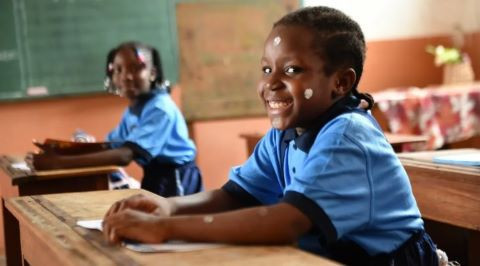
GCED Basic Search Form
Quick Search
현재 위치
뉴스

The United Nations General Assembly 2022 was a historic moment for the global education community: this was the first ever UN-convened Heads of State summit focused on the sector. New York’s midtown was full of education policymakers, activists, implementers, researchers and funders, whose calls to recognise a global education crisis exacerbated by the COVID-19 pandemic felt heard.
Yet, when categories of education stakeholders are listed out, philanthropy is not often made distinct and is usually bucketed under ‘funders’, or ‘private sector’, or – more broadly, since the 2021 UNESCO Global Education Monitoring Report – ‘non-state actors’. Philanthropy’s presence at global summits or in country-level system change is not often prominent, for various reasons. The education philanthropy community is diverse, in terms of what it funds, how it funds and who it funds. This year, at the Transforming Education Summit, the global education philanthropy community spoke with one voice for the first time.
More than fifty five philanthropic organisations signed a Statement, facilitated by the OECD’s network of Foundations working on Development (netFWD) and the International Education Funders’ Group (private philanthropy may still sign this through to 30th October). Sixty-seven actors then came together at a high-level event in New York during the TES to reiterate the perspective and intent of the text. The community expressed that they are:
- Concerned, about the global education crisis, which underpins so many of the world’s other crises too. Philanthropy applauds the TES as an effort to spotlight this.
- Committed to respond and to harness the diversity of the philanthropy community around the world to take action, and to support their partners through whom they are seeing real change. There is a strong case for investing in education and the philanthropy community urges others to join this work.
- Convinced that collaboration is a way to drive the greatest possible impact.
This was not an explicit call to action to other groups of actors, but to themselves. These foundations committed to listen and learn better, to align with national priorities, to further enable an evidence-driven approach, and to fund and engage in partnership in support of SDG4. Beyond these commitments, what emerged was the need and desire across this community for a collective rethink of the ‘how’.
The wider education community (and beyond) would do well to reflect upon the conclusions of the philanthropy community on what it will take to ‘transform’ education:
- Education goals will not be met by amplifying current siloes and channelling more money into broken pipes. Denis Mizne of the Lemann Foundation warned about ‘status quoism’ as a powerful force in education. We cannot go back to how things have always been, as it would institutionalise learning losses. Working within education across debates, and working outside of education across sectors will be necessary to achieve education – and other – goals.
- While we see some success, we should not get complacent. As Denis Minze reminded the audience, ‘the future is already here, but it’s not evenly distributed’ (William Golding). We know enough about ‘what works’; now we need to focus – together – on the challenges of bringing these to scale.
- We must harness our diversity in working together and think collectively. To quote Simon Sommer of the Jacobs Foundation: ‘transforming education is not about 1000 pilots’. Denis Mizne urged ‘let’s be problem, not project, driven’. This community committed to bring foundations from the global South more systematically into the debate, to partner with local actors, and to work to drive up learning outcomes for the most vulnerable children.
These three challenges echoed in our ears as we navigated the rest of UNGA week: we heard too little in wider debate about the need to work across siloes, to collaborate more effectively towards bigger picture goals, and to act with urgency. However, the momentum within the philanthropy community will be quick to pass if we do not walk that talk. As HE Hang Chuan Naron, Minister of Education in Cambodia, put it to the philanthropy community: ‘it is a long way from policy to school’.
If we do not want to look back a year from now and lament missing a turning point, we have to roll up our sleeves and take practical action. How many of us emerged from the TES knowing how we are going to work differently, what we are going to do? OECD’s netFWD and the IEFG will be working with the education philanthropy community to translate these commitments into action. We will help to broker dialogue, codify knowledge and build bridges to policymakers to ensure that philanthropy delivers on its promises: not only those of the Statement but those that we make to ourselves to leave this world a better place for future generations.
URL:
